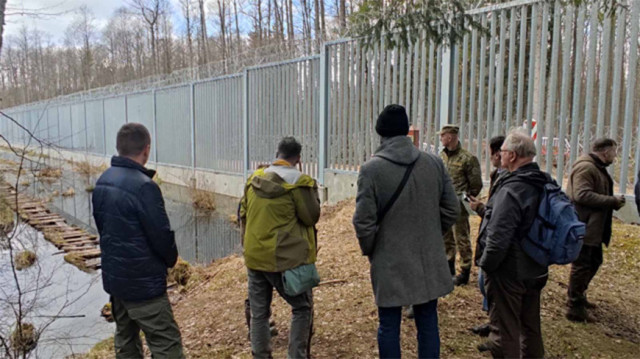MINSK, 25 March (BelTA) - UNESCO international experts are conducting a reactive monitoring mission in the Belarusian part of the transboundary UNESCO World Heritage Site Belovezhskaya Pushcha, BelTA learned from the press service of the Ministry of Natural Resources and Environmental Protection.
The monitoring mission is coming to the site following the decision taken at the 45th session of the UNESCO World Heritage Committee to assess the impact of the fence erected by Poland on the border with Belarus, which also passes through the territory of the transboundary UNESCO World Heritage Site Belovezhskaya Pushcha, on the ecosystems of the natural reserve.
“The Ministry of Natural Resources and Environmental Protection of Belarus, as a state administration body responsible for cooperation with UNESCO on the protection of specially protected natural territories, will coordinate the reactive monitoring mission from Belarus. The mission will be followed by an official commentary, including on the decision taken during the 46th session of the UNESCO World Heritage Committee ( New Delhi, India, on 21-31 July),” the ministry said.
The experts, accompanied by First Deputy Minister of Natural Resources and Environmental Protection Aleksandr Korbut, representatives of the Belarus President Property Management Directorate, the State Control Committee, the State Border Committee, territorial bodies of the Ministry of Natural Resources and Environmental Protection, the Belovezhskaya Pushcha National Park, local self-government bodies and the public, have already explored a part of the park in Brest Oblast. On 25 March, the UNESCO experts are expected to visit the part of Belovezhskaya Pushcha in Grodno Oblast.
On 25 January 2022, without conducting the necessary construction and environmental expertise, Poland began to erect a fence made of concrete, iron and barbed wire along the state border with Belarus, including in the territory of the transboundary UNESCO World Heritage Site Belovezhskaya Pushcha. Construction works were completed on 30 June 2022. “As a result, the groundwater level is already changing, which may lead to the death of valuable old-growth forests in the border strip, degradation of wetlands,” the ministry emphasized.
BelTA – News from Belarus
